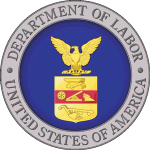 On April 16, 2015 I posted an article about conflicts of interest exhibited by many who advise retirement plans. The value of retirement assets owned by U.S. plans and savers is something north of $21 Trilliion. The latest figure I’ve found was from 2013, at $20.8 TT and the equity and real estate markets have risen considerably since then, while bonds have largely stood still (while paying out interest). This has attracted investment advisors, both scrupulous and not, to the marketplace. Most of them do not have to tell investors that their “advice” is really a sales job. By definition, if an advisor is not pledged or required to act in your best interest, you should realize there is an adversarial potential in the relationship.
On April 16, 2015 I posted an article about conflicts of interest exhibited by many who advise retirement plans. The value of retirement assets owned by U.S. plans and savers is something north of $21 Trilliion. The latest figure I’ve found was from 2013, at $20.8 TT and the equity and real estate markets have risen considerably since then, while bonds have largely stood still (while paying out interest). This has attracted investment advisors, both scrupulous and not, to the marketplace. Most of them do not have to tell investors that their “advice” is really a sales job. By definition, if an advisor is not pledged or required to act in your best interest, you should realize there is an adversarial potential in the relationship.
Now, smart investment salespeople understand that it is in their long term interest to treat people fairly. The problem here is that not all investment “advisors” think long term, nor are all of them smart. Some think more about meeting this month’s sales contest goal, or worry about how to pay for their kid’s ballet lessons this week.
Right now the investment sales industry especially bankers, brokerage firms and insurance companies are working to undermine the Department of Labor proposals. Having read them over, I want to share with you my stand on this matter, so below is published my comment to the Department of Labor (DOL):
As a Registered Investment Advisor (California) and Certified Financial Planner (TM), I am writing in support of DOL’s proposed expansion of the definition of “Fiduciary” with regard to those advising retirement plans, including IRA accounts.
Deep conflicts of interest lie with those who resist taking responsibility for offering advice that is in the best interests of their clients who are retirement plan beneficiaries. Having operated under a “fiduciary” mandate for some 25 years, I find no quarrel with meeting this standard, nor should any entity that wishes to participate in the large and lucrative retirement market.
We live in an era when millions of our fellow citizens are rapidly entering their retirement years, and becoming increasingly dependent upon their personal savings to supplement government benefits in retirement. In the private sector, guaranteed pension income or subsidized health benefits has become a rarity, even for those who have loyally served a single employer for many years. The current generation of “Baby Boomer”Americans must rely to a greater degree on their own savings and investments than their parents’ generation to maintain a decent quality of life when they are no longer able to work or to find gainful employment. As your proposed rule points out, the “Fiduciary” definition was developed in 1975, a time when the benefits landscape allowed retirees a greater degree of institutional support from benefit plan sponsors who were likely to be more sophisticated when managing retiree assets. Today, individuals are rarely educated in the many investment options potentially available to them, and often fall victim to confusing, unnecessary or over priced schemes.
This change in the landscape from 1975, coupled with our aging population, justifies in my opinion, DOL’s efforts to expand the definition of Fiduciary. All citizens particularly the “little guy” need to be protected from inappropriate investment advice and hidden, often egregious fee impositions.
I would however, urge DOL to avoid using this expansion of the Fiduciary definition to justify a regime of annual filings and the bureaucratic build-up that is likely to go with such a requirement. Why? Because it would seem to me that as the Fiduciary standard expands, investors and plan sponsors will be able to afford themselves of the robust legal and/or arbitration process potentially available to them through established channels.
I hope the Department of Labor is able to resist the lobbying that has already become apparent from questionable sales organizations who wish to shirk their implied responsibility to individual citizens and retirement plan sponsors by curtailing this effort by DOL to expand the definition of “Fiduciary.”
Sincerely
Gary E Miller, CFP(R)
Trusted Financial Advisors
30101 Town Center Drive
Suite 100
Laguna Niguel, CA 92677
